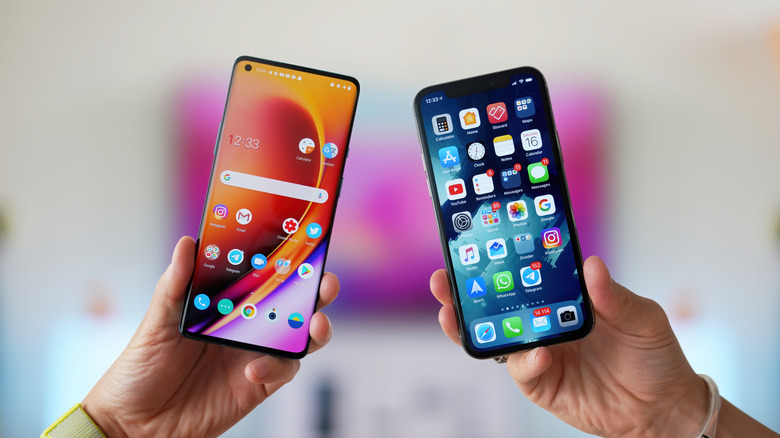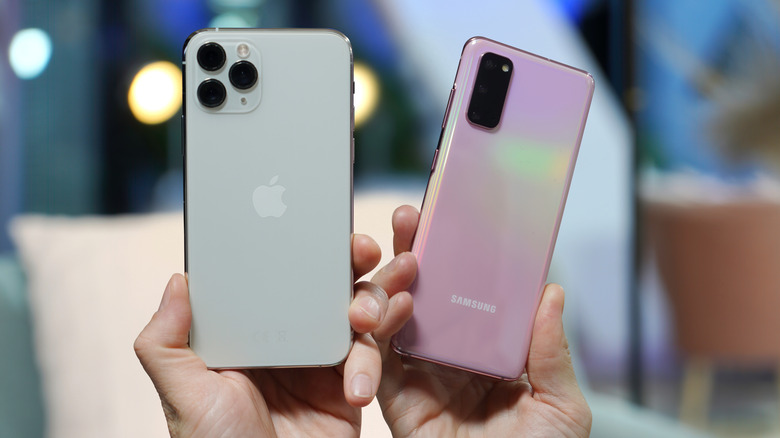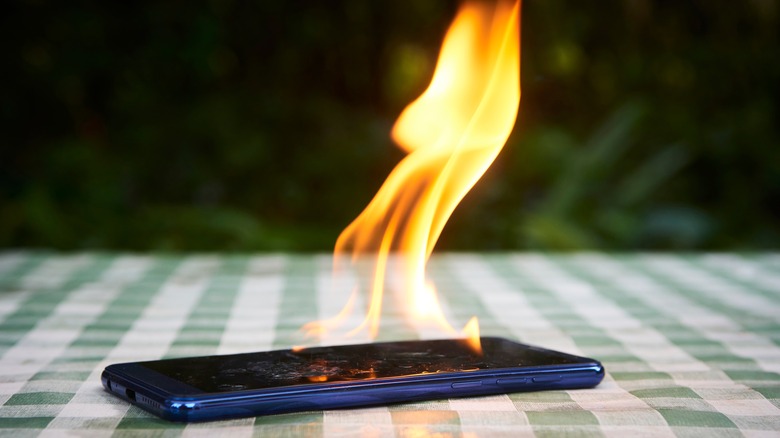36% Believe This One Myth About Smartphones - SlashGear Survey
It has been about 30 years since the first working smartphone, or the combination of the cell phone and a personal digital assistant, was invented, and the industry has come a long way. Today, smartphones can take high-resolution images of the moon, run the most demanding games, and transfer data at lightning-fast speeds. Companies like Apple, Samsung, and Google are equipping their smartphones with some of the most powerful yet sophisticated components, such as compact processors, fast-charging batteries, and under-display cameras.
We've advanced to an extent where millions of users can purchase foldable phones. However, even today, there are a lot of myths and misunderstandings among users related to ways of saving battery life, the level of radiation generated, and so on. Recently, SlashGear surveyed its readers about smartphone-related myths, such as the megapixel count on a smartphone and a decade-old egg-cooking myth. Needless to say, the results were astonishing. Here are some prevalent myths among smartphone users in the U.S. and what's actually true.
A lot of users believe that closing apps saves their phone's battery
In the survey, we asked participants about the myths related to their smartphones. Out of the 588 respondents from the United States, 35.88% believed that closing apps running in the background could save their phones' battery. We understand why the idea of closing apps is associated with saving battery, but that is not how memory management works on Android smartphones and iPhones. In fact, closing apps manually is neither good for the RAM nor the battery on a smartphone.
Do you believe that submerging your water-damaged smartphone into rice has any effect? Well, our survey reveals that a significant number of people, i.e., 31.29% of respondents, believe in the notion, which is a myth. Take it from the known repair parts seller iFixit that says corrosion happens instantly when a phone hits water. However, it is the duration of exposure and whether water has reached the critical components. Hence, displacing water and drying out the phone is much more important than keeping it in a bag of rice and doing nothing.
Another popular myth among 16.16% of survey participants seems to be the importance of a higher megapixel count on smartphone cameras. If that were true, the 12MP primary camera on the iPhone 13 Pro would not stand in front of the 108MP primary camera on the Samsung Galaxy S22 Ultra. Contrary to what many believe, modern-day smartphones compete on the grounds of computational photography.
Some users believe that they can cook eggs with their smartphone
A good 10.54% of people who took the SlashGear survey think that they need to let their smartphones' battery drain all the way to zero before they can charge it again. It is ideal to charge your smartphone before it falls below 20% and avoid charging past 80%. Users should know that both Apple and Google have a feature that stops charging past 80% in specific scenarios to sustain battery health.
Last but certainly not least, 6.12% of respondents believe that their phone can cook an egg. To recall, the myth originates from a nearly 15-year-old claim that the radio waves generated by smartphones carry enough heat to cook an egg in 60 minutes. While some users might appreciate such a feature, which allows them to cook their eggs with their smartphones, that might not be possible just yet. In the simplest words, cooking an egg requires much more heat or energy than smartphones store in their battery or produce in the form of radiation. The idea that phones can cook an egg could have originated from the fake videos circulating on the internet.


